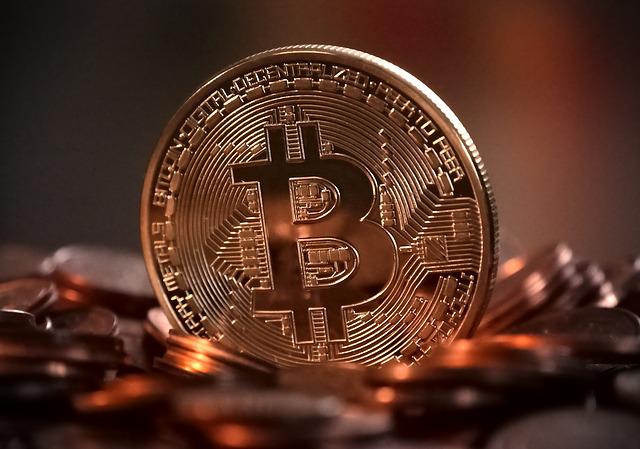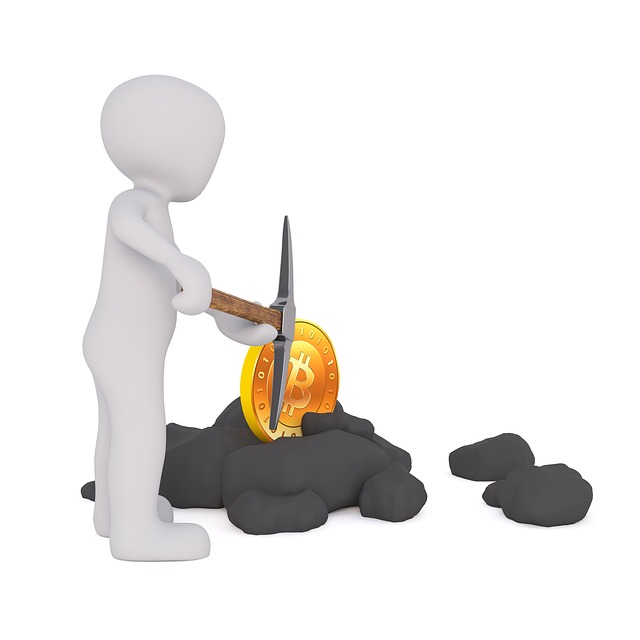What is Bitcoin, and is It the Right Option for Your Business?
So what exactly is Bitcoin?
Cryptocurrency is a type of electronic payment that is generated (or "mined") by several people worldwide but isn't exactly a coin. It makes peer-to-peer transactions possible immediately, anywhere in the globe, and for very little money.
The algorithm behind Bitcoin was created and unveiled in 2009 by software developer Satoshi Nakamoto (said to be a pseudonym), who had spent decades researching cryptography. His exact identity is still unknown.
Bitcoins are a commodity in and of themselves since they may be traded online and are not backed by any tangible goods (like gold or silver).
Anyone who is a user may access Bitcoin because it is an open-source product. To get started, all you need is money, an email account, and an Internet connection.
Where does bitcoin come from and what is its primary source?
Bitcoins are mined using specialized software on a distributed computer network of users. The network looks for a specific data sequence (referred to as a "block") that creates a specific pattern when subjected to the BTC algorithm. A bitcoin is produced by a match. It requires a lot of effort, time, and complexity.
There will only ever be 21 million bitcoins produced (about 11 million are currently in circulation). Network computers must solve more difficult math problems to manage mining operations and supplies.
Additionally, this network verifies each transaction via encryption.
How does Bitcoin function?
On a network, internet users exchange bits or digital assets. Instead of an online bank, Bitcoin has been described as a distributed ledger that spans the whole Internet. Users can purchase bitcoins with cash or by trading goods or services for them. In bitcoin wallets, digital currency is stored and used. By exchanging their Bitcoin for the interest of another party that wishes to join, users can exit this virtual ledger.
Anywhere around the globe, anyone can accomplish this.
The Internet is flooded with Bitcoin exchanges, and there are smartphone apps for carrying out mobile Bitcoin transactions.
What is the worth of bitcoin?
Since no financial institution owns or manages Bitcoin, it is completely decentralized. It cannot be depreciated by governments or banks like regular money can.
Instead, the value of Bitcoin stems from the fact that it is a scarce resource and that other users accept it as a form of payment. As more people create wallets, store, and use bitcoins, and as more businesses accept them, bitcoin's value will rise.
This digital currency's value changes on a global scale in reaction to market speculation, supply and demand, and other factors. Currently, banks are attempting to value Bitcoin, and according to certain investing websites, the cost of a bitcoin will reach several thousand dollars in 2014.
Why is it advantageous?
Customers and businesses who employ this payment method can profit from it.
1. Quick transfers: Bitcoin is sent over the Internet immediately.
2. Low or no costs — Bitcoin may be used for free or with extremely little cost, unlike credit cards. Without the centralized institution serving as a middleman, no authorizations (and related fees) are required. This boosts sales and profit margins.
3. Reduces the possibility of fraud because only the owner of the Bitcoin may send money to the intended receiver, who is also the only one who can accept it. Considering that the network is aware that the transfer occurred and was verified, transactions cannot be contested or reversed. This is important for firms that deal with credit card chargebacks or online merchants who frequently have to rely on credit card processors' judgments about whether a transaction is fraudulent or not.
4. Data is secure — As recent breaches in the payment processing systems of well-known businesses have shown, private information is not always safe on the Internet. Users do not divulge any personal information when using Bitcoin.
A. They have two keys: a private key that contains personal information and a public key that acts as the bitcoin address.
B. By merging the public and private keys, transactions are digitally "signed"; a mathematical formula is then used, and a certificate is issued demonstrating that the user started the transaction. A unique digital signature that is never reused is needed for every transaction.
C. Your private information (name, phone number, and physical address) is never shown to the business or receiver, making it relatively anonymous yet traceable (to the bitcoin address on the public key).
5. Convenient payment system – Since Bitcoin can be converted to dollars, merchants may utilize it totally as a payment method without having to store any of the cryptocurrency. Buyers and sellers can exchange Bitcoin and other currencies at any moment.
6. Global use of Bitcoin makes it simple for online retailers and service providers to accept foreign payments, which expands their market opportunities.
7. Simple to follow — Every transaction made in the Bitcoin blockchain is tracked by the network and permanently logged (the database). It is simpler for law enforcement personnel to track these transactions in the event of potential crime.
8. Micropayments are conceivable because Bitcoins may be broken down to one hundred millionths, making it possible to perform transactions for just pennies on the dollar or less. Convenience stores, coffee shops, and subscription-based websites may benefit greatly from this (videos, publications).
Still somewhat perplexed? As examples, consider the following transactions:
Bitcoin in a retail setting
The client uses a smartphone app to scan a QR code at the register that contains all the transactional information needed to transfer the merchant bitcoin. The transaction is finished when you tap the "Confirm" button. If the user doesn't already have any Bitcoin, the network converts funds in their account into bitcoin.
There are no or very cheap processing costs (instead of 2 to 3 percent), no danger of fraud, the store can change the Bitcoin into dollars if it so chooses, and there are no personal consumer information hacks. Very smooth.
Hospitality with bitcoin
Hotels may accept room and meal payments in cash on the premises as well as PC-to-website payments for online reservations from clients who want to pay with Bitcoin using their mobile wallets. The transactions that it clears through the Bitcoin network can be handled with help from a third-party BTC merchant processor. For customers who have BTC smartphone apps, these processing clients are deployed on tablets at the front desk of the institution or in restaurants. (These payment processors are also offered for desktops, in POS systems for retail, and even in POS systems for food service.) There is no need to exchange cash or credit cards.
These quick cashless transactions allow the processor to convert bitcoins into fiat money and deposit funds into the business's bank account daily. In January 2014, it was made public that two hotel casinos in Las Vegas will accept Bitcoin payments at the front desk, in their dining establishments, and in their gift shop.
What's the catch? It seems fine, so what's it?
Business owners need to consider expenses, security, and participation challenges.
- Only a small percentage of regular shoppers and business owners presently use or comprehend Bitcoin. Nevertheless, usage is quickly increasing, and technologies and tools are being developed to make participation easier.
- Because of the Internet, exchanges are at risk from hackers. According to The Economist, a Bitcoin exchange was breached in September 2013, resulting in the theft of $250 000 worth of bitcoins from users' online safes. Like other forms of cash, bitcoins may be stolen, thus maintaining strict network, server, and database security are essential.
- Users are responsible for keeping their private keys safe in their bitcoin wallets. Printouts or secure backups are essential.
- Since Bitcoin is neither governed nor guaranteed by the US government, your account won't be covered if the exchange closes its doors or is hacked.
- Bitcoins are not exactly cheap. On the web exchanges, you may get the most recent rates and selling prices.
- Although virtual money is still not widely accepted, it is starting to get noticed. A company could elect to use Bitcoin as a consumer convenience, to save credit card and bank transaction fees, or to test if it boosts or detracts sales and profitability.






